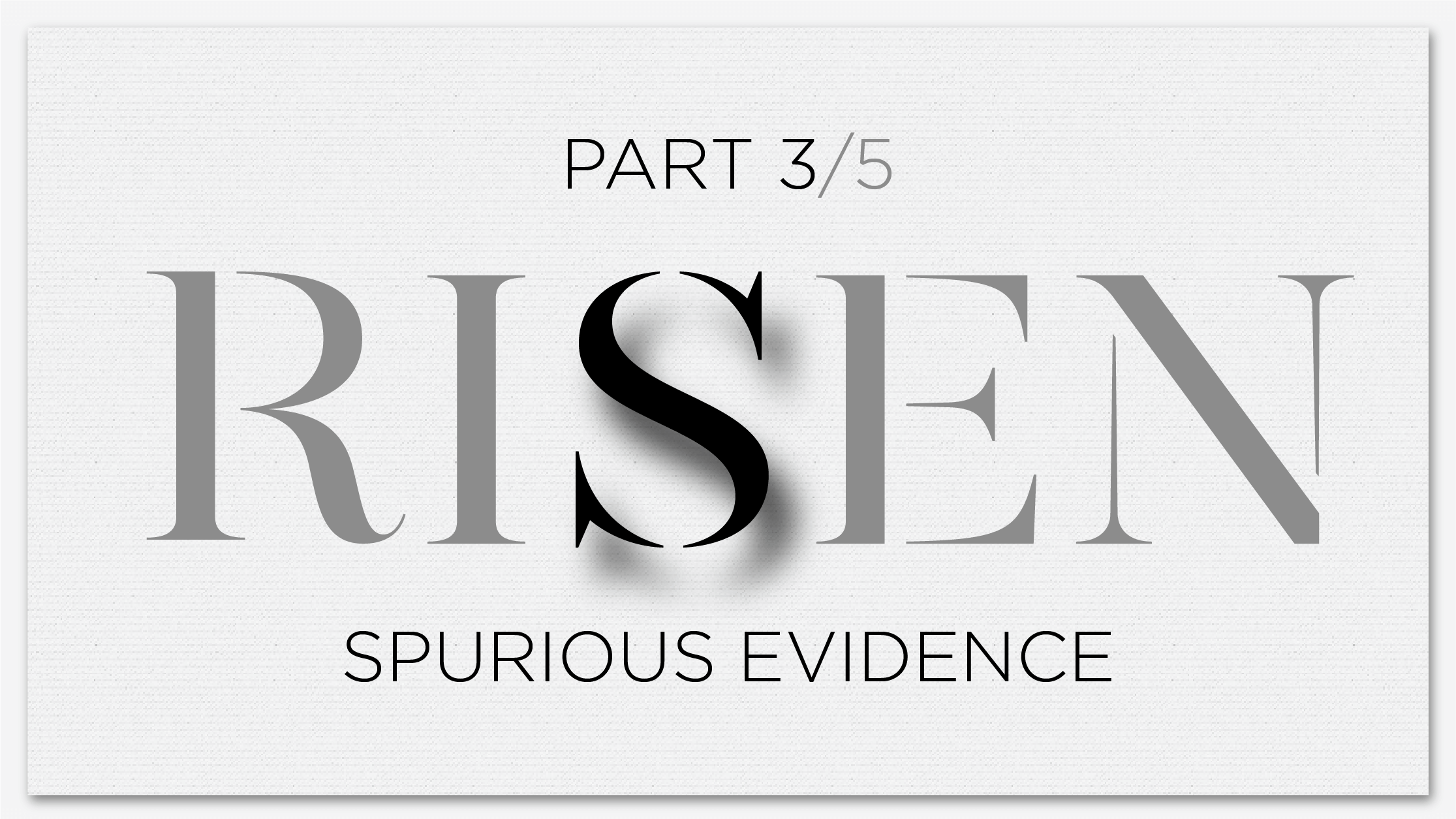RISEN, Part 3: Spurious Evidence
This post is Part 3 of our RISEN series. You can also read the Introduction, Part 1, Part 2, Part 4, or Part 5.
Having considered the issue of the inconsistent accounts of the resurrection, let’s turn our attention now to the spurious accounts. The word spurious means false, and it is how Biblical scholars describe non-canonical verses, passages, or even entire books. Matthew, Mark, Luke, and John were trusted and canonized based upon their recognized apostolic authority, meaning they were known to derive from authentic eye-witness accounts. But there are many other writings, such as the gospels of Thomas, Mary, and Judas, that are known to be spurious. There are also additions to the original writings that are considered spurious.
For example, the gospel of Mark ends very abruptly (a curious but important fact that I will consider in another post) with these words concerning the resurrection: “And they went out and fled from the tomb, for trembling and astonishment had seized them, and they said nothing to anyone, for they were afraid.”
But if you look in your Bible, it probably includes 11 additional verses (vss. 9-20) in brackets, with a note that they were not a part of the original manuscripts. Why? Essentially there were several later attempts to “improve” upon Mark’s abrupt ending, and this one, in particular, became popularized and began showing up in later manuscripts. Then the King James Version included it, which led to its widespread inclusion in nearly every English translation. However, scholars unanimously agree that this is not Mark’s writing and was not a part of the original gospel.
So what does all of this have to do with the historicity of the resurrection? Some get discouraged by all the spurious writings surrounding the New Testament, assuming it’s a threat to the historical reliability of the Scriptures. But, in fact, the opposite is true. In the same way the inconsistent accounts of the resurrection confirm the resurrection (see previous post), the spurious accounts of the resurrection are likewise confirming.
Do you know how significant it is that we can understand 1st century documents so well that we know definitively what should and should not be included? It’s historically unprecedented.
How do historians know what an ancient document actually said? They rely on three criteria: how many copies do we have, how near are these copies to the original, and how much do those copies agree? So, if you only have a few copies, those copies are dated long after the original, and those copies don’t agree much, then it is very difficult to know exactly what the original said.
But consider Homer’s Iliad, the most attested ancient document outside the Bible. We now have over 1000 surviving copies, there is a 400-year time gap between the original and earliest copy (that might seem like a lot, but it’s actually fairly short in comparison to other writings), and the copies agree 95% of the time. What this means, historically speaking, is that nobody would ever question that we have an accurate understanding of Homer’s original words.
Now consider the New Testament: 5,600 surviving copies and counting, some of those copies date an astounding 40 years from the original, and they agree an equally astounding 99% of the time (1). So precise is the documentation that we can know, down to a single word, what is authentic and what is spurious. Simply put, the Bible is far and away the most attested and verified document the world has ever known.
Therefore, the uninformed assumption propagated by internet “scholarship” that presents the resurrection as a legend past down and recorded many centuries after the fact is demonstrably false. In reality, the New Testament contains historically reliable accounts of the resurrection, recorded while the event itself was still falsifiable by living witnesses. In fact, Paul mentions a group of 500 witnesses, most of whom were still alive in a letter dated only 20 years after the resurrection (1 Corinthians).
Does this prove the resurrection true? No. It does, however, prove the record of the resurrection to be true. Historically speaking, were we dealing with anything else, there would no debate. The witnesses are authentic, the writings are authentic, it seems to me we should believe the event itself to be authentic.
- Robert
(1) This is a summation of widely accepted data. If you want to go deeper into the specifics, I would suggest Bruce Metzger’s The New Testament: Its Background Grown and Content and Richard Baucham’s Jesus and the Eyewitnesses. If you want an easier and more convenient summary of scholarship, you can find that here.

